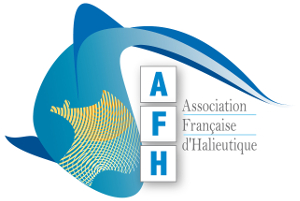2017: Technicien de formation et de recherche en écologie halieutique à Agrocampus Ouest Rennes
Technicien de formation et de recherche (catégorie B), ouvert à la mobilité aux fonctionnaires de tous les ministères.
Ce poste paraitra à compter du 9 mars sur la note de service du MAAF avec l ‘intitulé « Chargé.e des techniques d’études en Biologie aquatique ». Les agents MAAF peuvent candidater jusqu’au 21 mars et les agents extérieurs au MAAF jusqu’au 17 mars
2017_post-doc 7 mois MNHN
2017: Thèse en bio-économie des pêches en co-tutelle France-Australie
Offre de thèse en bio-économie des pêches en co-tutelle entre la France (UMR AMURE, Brest) et l’Australie (CSIRO, Hobart).
Candidatures à faire sur le site de l’EDSML
https://theses.u-bretagneloire.fr/sml/theses-2017/evaluation-de-regles-de-controle-des-cap-1/++add++Candidate
2017: Poste CFER, Quantitative Fisheries Scientist
Centre for Fisheries Ecosystems Research (CFER)
Fisheries and Marine Institute of Memorial University of Newfoundland
St. John’s NL Canada
(Permanent Position)
https://www.mun.ca/hr/careers/job.php?id=6574
2017: Postdoc position EU-ERC project bio-economic modelling
Postdoctoral position on fisheries bio-economic modelling on the EU-ERC Starting Grant project CLOCK.
2017: vacancy Ecosystem Acoustics Scientist
Position for an Ecosystem Acoustics Scientist at Wageningen Marine Research (formerly known as IMARES), the Netherlands: https://www.wur.nl/en/Jobs/Vacancies/Show/Ecosystem-Acoustics-Scientist-4.htm
Deadline for applications is March 13th.
For more information, contact Tammo Bult, tammo.bult@wur.nl, of 0317-487162
2017: Poste de MC ouvert à l’UPPA (UMR ECOBIOP)
Recrutement d’un MC à l’UPPA, affecté à l’UMR INRA-UPPA Ecobiop dont le profil est accessible via le lien suivant :
http://drh.univ-pau.fr/live/recrutement/emplois-enseignants/enseignants-chercheur
2017: EDF Postdoctoral Fellow position
Post-doctoral fellow (2 year term) who can help us improve the performance of the vast majority of fisheries that have low governance capacity and limited data. This will include the development of new data limited stock assessment methods, new models for projecting the biological, ecological, social, and economic effects of various management strategies even under data-limited conditions, and new approaches for managing complex multispecies fisheries. Strong quantitative and modeling skills will be necessary, as well as the ability to help us train and coach scientists, fishermen, and managers in data limited stock assessment and management in some of the 11 geographies we are engaged in: the US, EU, UK, Belize, Cuba, Mexico, Chile, Philippines, Indonesia, Myanmar, Japan, and China.
